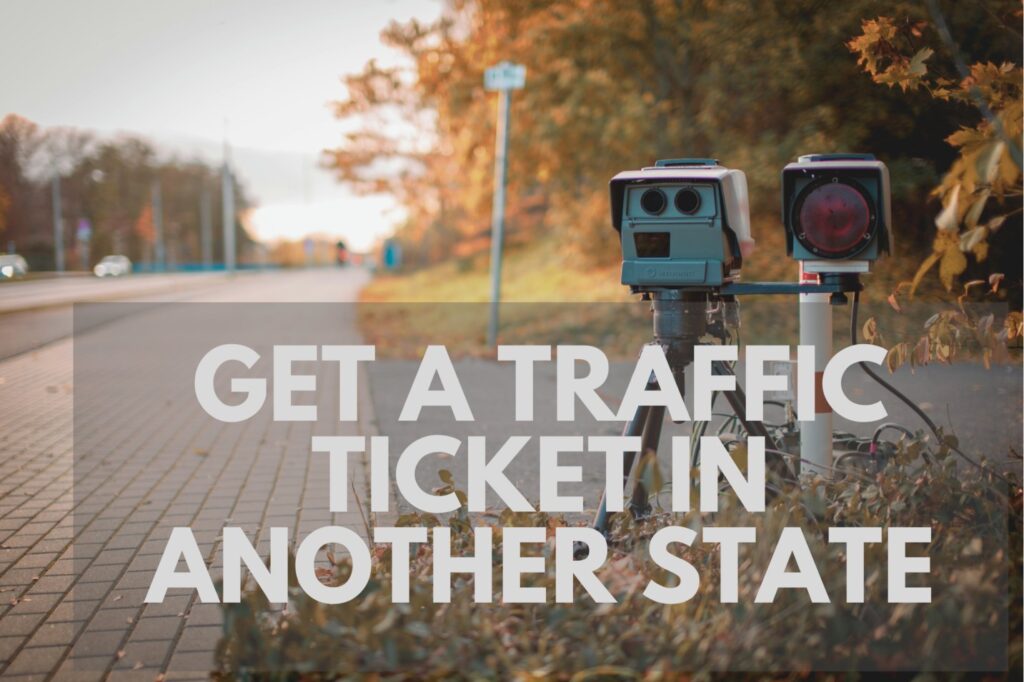Getting a traffic ticket is never fun, and it can feel even more stressful in a place you don’t know well. Whether you’re visiting family, on a work trip, or just driving through, handling a ticket while traveling can be tricky. But don’t worry—I’ve put together an easy guide to help you take care of it like a pro.

Contents
- 0.1 Step 1: Stay Calm and Review the Ticket
- 0.2 Step 2: Understanding the Effects
- 0.3 Step 3: Decide How to Respond
- 0.4 Step 4: Handle It Remotely (If Possible)
- 0.5 Step 5: Take Action Before the Deadline
- 0.6 Step 6: Notify Your Insurance (Maybe)
- 0.7 Step 7: Learn the Local Laws for Next Time
- 1 Final Thoughts
Step 1: Stay Calm and Review the Ticket
Stay calm when you’re pulled over. Be polite, nod, and smile as the officer leaves. Remember, signing the ticket doesn’t mean you admit guilt—it just shows you received it. Take a deep breath once they’re gone, then read the ticket carefully. Look for important details like:
- The violation (e.g., speeding, running a red light)
- The court’s location and contact info
- The deadline to respond
- Options for paying or contesting it
Every state has its own rules, so don’t assume it works the same way as it does back home.
Step 2: Understanding the Effects
Most states share traffic violation details through the Driver’s License Compact (DLC). This means your ticket may add points to your license and raise your insurance rates, even after you return home. To understand how out-of-state tickets affect you, check with your state’s DMV. Ignoring the ticket could result in fines or even a suspended license.
Step 3: Decide How to Respond
You’ve got a few options, and the ticket should outline them:
- Pay the Fine: If it’s a minor offense and you admit guilt, paying the ticket might be the simplest option. Many states let you pay Traffic ticket online or by mail. Just remember, paying usually means accepting the violation, which could impact your driving record.
- Contest the Ticket: If you believe you’re innocent, you can contest the ticket, but you’ll likely have to go to court in the state where you got it. If it’s far away, consider whether the time and effort are worth it compared to the ticket’s cost and impact.
- Plead No Contest: Some states offer ways to settle a ticket without admitting guilt, which could lower fines or prevent points on your license. Check local laws to see if this option is available.
Step 4: Handle It Remotely (If Possible)
Traveling back to the state might not be practical, so explore alternatives. Call the court clerk—listed on the ticket—and ask about:
- Paying online or by mail
- Hiring a local traffic attorney to represent you
- Requesting a hearing by phone or video (some places allow this)
- Submitting a written declaration to contest it
A lawyer can be a lifesaver if the ticket’s serious (like a DUI or reckless driving), but for a simple speeding ticket, you might not need one.
Step 5: Take Action Before the Deadline
Mark the due date on your ticket. If you don’t pay on time, you could face higher fines, license issues, or even a bench warrant. If mailing your payment or documents, send them early—regular mail can be slow.
Step 6: Notify Your Insurance (Maybe)
You don’t always need to tell your insurance company—they’ll likely see it on your driving record later. But if it’s a serious ticket or you’re worried about coverage, letting them know early can help avoid surprises. Shop around for quotes, as a ticket might raise your rates.
Step 7: Learn the Local Laws for Next Time
Traffic laws are different in each state. You might be allowed to turn right on red in one place but get a ticket for it in another. Before your trip, check the DMV websites for the states you’ll be driving in. A little research can help you avoid trouble.
Final Thoughts
Getting a ticket in another state isn’t a big deal, but you need to deal with it. Take action fast, understand your choices, and don’t ignore it. Take care of it the right way, and you’ll be back on the road soon—hopefully driving a little slower.